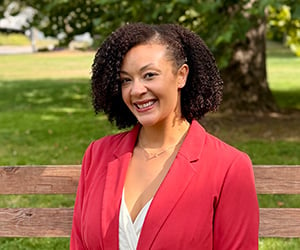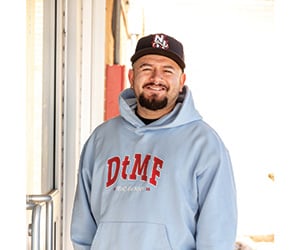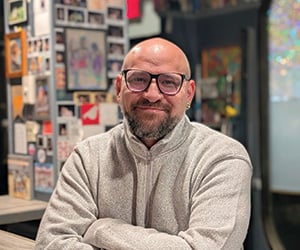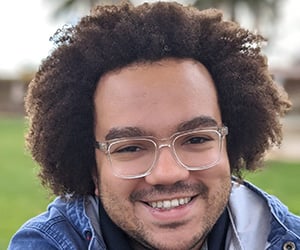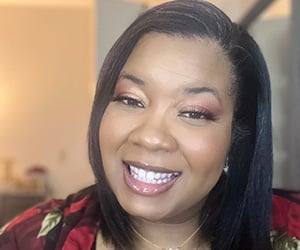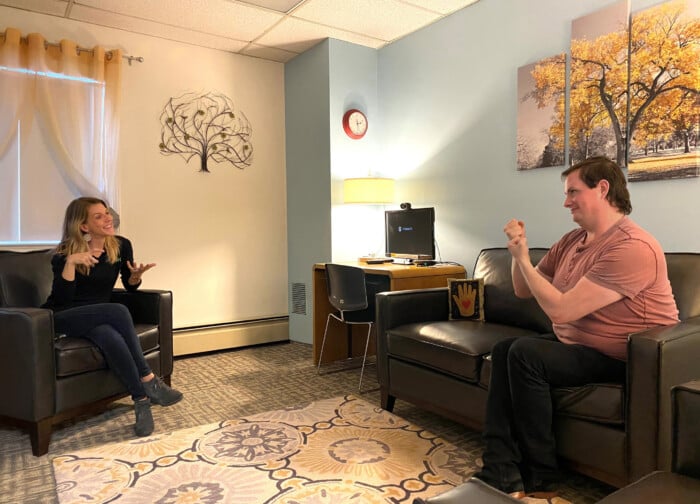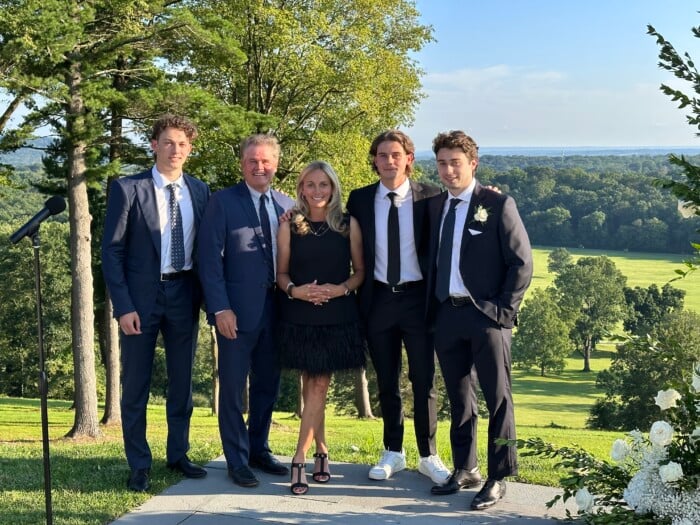Let It Begin with Me
 After graduating from West High School in 1995, I left Manchester and did not return for 27 years. It was an era of colorblind racial politics that amounted to well-intended white folks expressing how I was “the spitting image of a perfect little China doll.” Somewhere later in the conversation, they’d add, “I don’t see color.”
After graduating from West High School in 1995, I left Manchester and did not return for 27 years. It was an era of colorblind racial politics that amounted to well-intended white folks expressing how I was “the spitting image of a perfect little China doll.” Somewhere later in the conversation, they’d add, “I don’t see color.”
As a trans-racial Korean-adoptee raised by French-Canadian parents, I did not see another face like mine in most rooms, including in my own home. According to the Census’s “Asian and Pacific Islander Population (API) in the United States” report, in 1980 the API population in New Hampshire included 3,342 people. Ask any of us Asians growing up here, and you’ll hear: “Wow. Where were all those Asians?” Those 3,000-plus people only made up 0.03% of the state’s population.
As a kid, well-meaning white folks stopped my mother and me at McQuades on Elm Street to compliment and touch my “silky Oriental hair” or express how “Oriental women are the most beautiful.” When I struggled with a math problem, more than one teacher reminded me how “smart the Chinese and the Japanese are.” As a kid, I learned that I am not seen unless I’m pretty or productive.
Growing up in Manchester was not all bad. In summer, there was a public swimming pool within a mile in any direction. We rode bikes to Gosselin’s Pharmacy for penny candy. We played outside unattended all day. My family attended Mass at St. Marie’s church on Saturdays at 4:30 and Sundays at 9 because my parents were in the choir. My mother was generally shy and modest, but when the choir sang “Let It Begin with Me,” she sang her heart out: “Let there be peace on Earth and let it begin with me…” On the short drive home, she’d explain its meaning and how it was every person’s responsibility to contribute to the world in positive ways.
My closest childhood friend and I spent whole summers exchanging whose house to sleep over, but it was often hers because her mother drove us to the beach.
As grown-ups, Shana and I meet annually for a weeklong beach vacation where we inevitably recall childhood mishaps. Like most childhoods, ours was not all good or all bad but complicated. There is much that went unsaid, and as adults, we speak openly about experiences that would qualify as Adverse Childhood Experiences.
Like me, Shana left the city immediately after graduation. If there were safety nets for us, we didn’t know they existed. I recently asked Shana if she had that one trusted adult going to school. Her answer matched mine: No.
It was not until I had my own child, I finally understood the value of one good adult mentor. So I became a teacher to be the adult that I needed as a kid, because complicated childhoods can be more bearable with support. As a teacher, my practice was grounded in reflection, curiosity, community and deep care. I shared these practices with students in my English classes as we wrote college essays. I modeled these habits while creating one of the only concert dance programs in a public school in New Hampshire.
Ultimately, it was through the lens of my child and my students that I learned to quiet the contradicting messages I heard growing up. How would my child or my students learn to trust their better instincts if I couldn’t trust my own?
My students have become teachers, school psychologists, occupational therapists, nurses, filmmakers, adventure guides, professional dance artists, singer/songwriters, welders, engineers, phlebotomists, physical therapists, moms, dads and advocates for their communities. My diverse, emotional, reflective, hard-working, silly, creative, smart, humble, scrappy students and child now bring their best selves into the world. I find peace in this.
Four years ago, I returned to Manchester as Manchester School District’s first chief equity officer. I was hired to support the district in ensuring that every single child had access to a high-quality public education regardless of their zip code, family’s income level, race, ability or background. While in that role, and in my own individual capacity as diversity, equity and inclusion practitioner, I joined a lawsuit represented by the ACLU, GLAD Law, and a diverse group of lawyers pushing back against the first wave of anti-CRT, anti-DEI, anti-public education legislation in the country. We won our case in federal court, and now await judgment from the First Circuit Court of Appeals. Last fall, I resigned from that position because I did exactly what the Manchester of my youth told me not to do: trust my instincts, speak out, stand up for what I believe and know to be true.
I went into the role knowing that, as one of the first DEI administrators in a public school district in New Hampshire, the job would be hard. Knowing that and living it were two very different things. Simply because people said they wanted an equitable education for all learners, didn’t mean they were equipped to take on the hard work to understand the real lived experiences of those who have been excluded and marginalized repeatedly.
“Let there be peace on Earth and let it begin with me.”
Merriam-Webster defines the word “let” to mean “to give opportunity to or fail to prevent,” or “to permit.” In many ways, “to let” is about giving oneself permission to release and give something a chance to take root.
After taking time to rest, care for my family, reflect and regroup, I continue to heal. Despite all my past experiences, I hold onto hope for this city and state.
In the spirit of “let it begin with me,” this summer I chose to move back to Manchester. I am committed to making peace with this place. This is my chance to replace harm with healing experiences for myself and for my community.
Tomorrow, I will register to vote in Manchester. I have planted a small perennial garden. I am giving myself permission to let it begin with me.
Read another essay from Tina here.
This article was featured in 603 Diversity.
603 Diversity’s mission is to educate readers of all backgrounds about the exciting accomplishments and cultural contributions of the state’s diverse communities, as well as the challenges faced and support needed by those communities to continue to grow and thrive in the Granite State.

